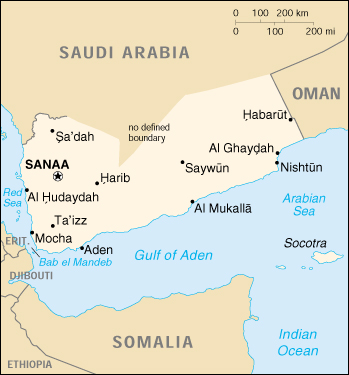The CIA is officially seeking authority to expand its covert drone war in Yemen by assassinating individuals even when their identities are not known in a move that would codify what appears to already be current practice.
 The agency’s director, David H. Petraeus, has requested permission to employ the tactic used in Pakistan for years called “signature strikes.” This would allow the CIA to launch drone missiles targeting groups of people exhibiting “suspicious behavior,” a loosely-defined judgement that would give the agency carte blanche to kill whoever it pleases in Yemen.
The agency’s director, David H. Petraeus, has requested permission to employ the tactic used in Pakistan for years called “signature strikes.” This would allow the CIA to launch drone missiles targeting groups of people exhibiting “suspicious behavior,” a loosely-defined judgement that would give the agency carte blanche to kill whoever it pleases in Yemen.
The Obama administration has already dramatically escalated the drone war in Yemen and although reports always describe those killed as “al-Qaeda” or as “militants,” several incidents are known to have killed large numbers of civilians.
But Washington’s approach to targeting is already far removed from knowing all of their victims and being sure of their affiliation with al-Qaeda. Earlier this month, the Los Angeles Times reported that “As the pace quickens and the targets expand, the distinction may be blurring between operations targeting militants who want to attack Americans and those aimed at fighters seeking to overthrow the Yemeni government.”
The crux of the Obama administration’s legal justification for killing militants outside the war zone without due process is that they present an “imminent threat” to America. The rationale is an especially weak one, but it is even weaker if the U.S. has been targeting unaffiliated partisan groups making up Yemen’s many ethnic and political cleavages. And it gets even weaker if the CIA now wants to target people they don’t even know.
Jeremy Scahill, reporting for Nation, exposed in February how U.S. airstrikes that kill civilians and those ill-defined as militants – along with support for the brutal Yemeni government – foments anti-Americanism and fuels international terrorism.
As Charles Schmitz, a Yemen expert at Towson University in Maryland, tells theTimes, “The more the U.S. applies its current policy, the stronger Al Qaeda seems to get.”
“U.S. involvement is far more than ever in Yemen. We have no evidence that all those being killed are terrorists,” Abdul Salam Mohammed, director of Abaad Strategic Center, told CNN. “With every U.S. attack that is conducted in Yemen al Qaeda is only growing in power and we have to ask ourselves why that is happening.”
“Drones are a weapon of terror in many ways, and the kind of hostility this is going to breed may not be worth the counter-terrorism gains,” says Barbara Bodine, who was U.S. ambassador to Yemen from 1997 to 2001.


